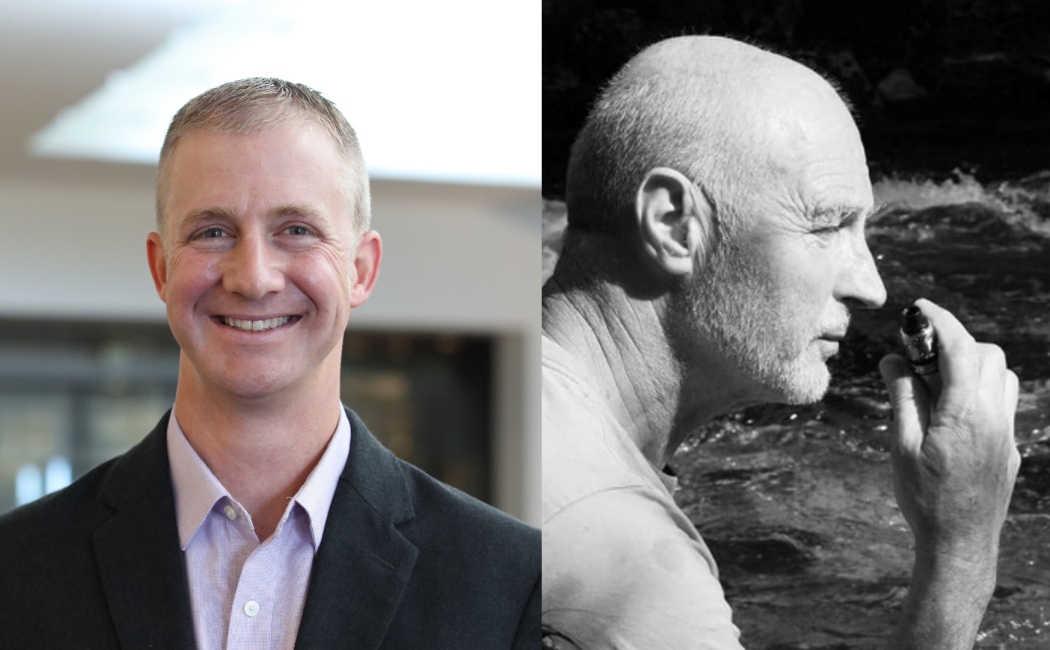Detail

Cereal Crop Improvement with Dr. Michael Dingkuhn and Prof. Jesse Poland
– Part of the CDA Spring Lecture Series.
Dr. Michael Dingkuhn and Prof. Jesse Poland will give a joint lecture on cereal crop improvement.
On Zoom
Theme
CIRAD-KAUST joint lectures – hosted by Prof. Mark Tester.
Research on Cereal Crop Improvement at CIRAD: Some Innovative Research Questions
Speaker: Michael Dingkuhn
Senior Crop Physiologist
PhenoMen team, UMR AGAP Institute, BIOS department, CIRAD (France)
Abstract
CIRAD conducts extensive breeding and pre-breeding research on rice and sorghum, both for tropical and temperate environments, and generally with external partners/networks (e.g. CGIAR). For both crops, strong molecular, ecophysiological, path/entom, and biochemical laboratories in Montpellier (France) collaborate with agronomists and breeders at field sites globally. The focus lies on genetic diversity and on biotic and abiotic stress adaptation traits (e.g. drought, heat, shade, salinity), including multi-purpose (sorghum) and high-yielding (rice) ideotypes. We will highlight some new promising avenues for rice: i) source-sink control of CO2 acclimation, increasing yield and root/soil C sequestration under rising [CO2]; ii) panicle transpiration cooling to avoid heat stress; iii) ideotypes resisting crop lodging; and iv) trait/allele combinations improving yield potential and stability across diverse environments. Crop/architectural models are linked into the phenotyping and genetic analyses of traits.
About the speaker
A German national, Michael Dingkuhn lives in France and works at CIRAD. He obtained his PhD in Crop Physiology in Hamburg on rice drought responses. Dingkuhn worked 22 years in the tropics (Philippines and West Africa) with the CGIAR on rice, and 18 years at CIRAD in Montpellier on different crops. He is an expert on yield and stress physiology and uses diverse approaches, e.g. crop phenotyping and modeling at different scales, working with breeders, and geneticists. Via the GRiSP Global Rice Phenotyping Network that he initiated and directed, Dingkuhn came to know KAUST. His current work focusses on phenotype-genotype associations, acclimation to elevated CO2, source-sink processes, agri-photovoltaics, crop lodging, and ideotypes.
Genomic Selection in the CIMMYT Global Wheat Program
Speaker: Jesse Poland
Professor of Plant Breeding and Genetics, Center for Desert Agriculture, KAUST (Saudi Arabia)
Lead of the Plant Breeding and Genetics Lab, KAUST
Acting Director, Feed the Future Innovation Lab for Applied Wheat Genomics, Kansas State University (USA)
Abstract
Genomic selection has emerged as a key breeding strategy for plant and animal improvement, enabling prediction of the total breeding value and selection for complex traits. Over the past decade we have worked to mainstream the use of genomic selection in the CIMMYT bread wheat breeding program, one of the largest breeding programs in the world. We have genotyped over 100,000 breeding lines over the past 8 years with advanced testing for over 10,000 of the lines, including extensive testing in South Asia. These robust datasets are used for model training and implementation of early generation selection. We will discuss the power of genomic selection and lessons learned along the way from taking these advanced breeding methodologies from theory to practical implementation in the breeding program.
About the speaker
Jesse Poland is Professor of Plant Breeding and Genetics in the Center for Desert Agriculture at KAUST. He is appointed to the graduate faculty in Plant Science where he serves as major professor and committee member for students in plant genomics, breeding, and genetics. Poland is the acting Director of the Feed the Future Innovation Lab for Applied Wheat Genomics with focus on applying genomics tools to accelerate wheat breeding and develop climate resilient wheat varieties throughout the world. The Plant Breeding and Genetics Lab led by Poland at KAUST is focused on how to develop climate resilient crops to address the grand challenges of food security in the coming generations.
This event occurred in the past. You can watch the recording on our YouTube channel.